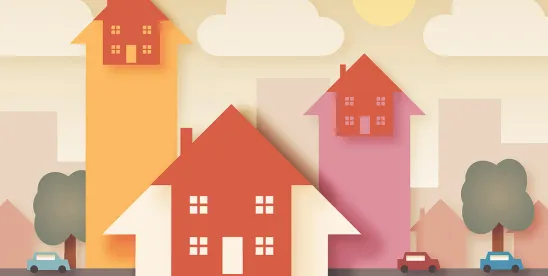We have seen a dramatic increase in housing insecurity among our pro bono clients in recent years. Unfortunately, it’s part of an alarming nationwide trend. According to a recent report issued by the U.S. Department of Housing and Urban Development (HUD), homelessness reached a record high in 2024. Indeed, the report found that the number of people experiencing homelessness in the United States – more than 770,000 – grew by 18% from the previous year, while the number of people in families with children experiencing homelessness increased by 39%. In a post-pandemic economy that is generally considered to be doing well, it seems counterintuitive that we would now be experiencing such growing hardship. The report points to several factors driving these numbers:
Our worsening national affordable housing crisis, rising inflation, stagnating wages among middle- and lower-income households, and the persisting effects of systemic racism have stretched homelessness services systems to their limits. Additional public health crises, natural disasters that displaced people from their homes, rising numbers of people immigrating to the U.S., and the end to homelessness prevention programs put in place during the COVID-19 pandemic, including the end of the expanded child tax credit, have exacerbated this already stressed system.
Economic insecurity makes any legal issue more difficult to handle and, as discussed in a recent post about a client whose child was temporarily removed from her care because she had trouble finding stable housing, it can also be the very cause of a legal issue. HUD’s eye-opening report reinforces the importance of taking on more pro bono matters in housing and family courts. As a profession, lawyers also need to expand the scope of assistance that nonlawyers can provide to unrepresented litigants and prioritize the development of AI and other technology to help bridge the justice gap. A great example of this type of advocacy is Housing Court Answers, a legal services organization in New York City embracing AI to help litigants in housing repair actions.
Taking a step back, HUD’s report underscores the urgent need to develop affordable housing and provide greater assistance to secure the safety and security of families and children. Not only is this sense of urgency lacking across the country, but the response to homelessness from local authorities is too often punitive in nature. Of note, last summer, the Supreme Court in Grants Pass v. Johnson upheld a local Oregon law prohibiting camping inside parks, sidewalks and other public property. The Court rejected the argument that punishing people for sleeping outside when they have no place to go constituted cruel and unusual punishment under the Eighth Amendment. Regardless of the Eighth Amendment’s reach, however, one thing is clear: relying on criminal law to solve the homelessness problem does not work. As Justice Sotomayor explained in her dissent, “[f]or people with nowhere else to go, fines and jail time do not deter behavior, reduce homelessness, or increase public safety.”



 />i
/>i
